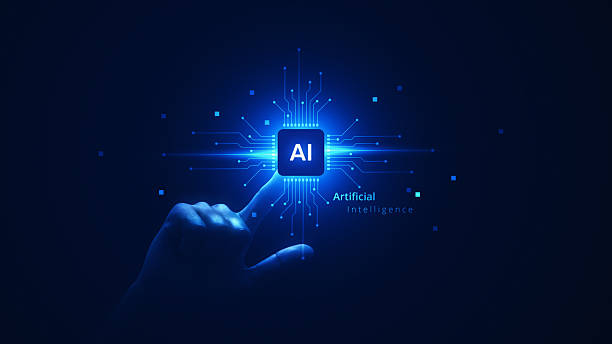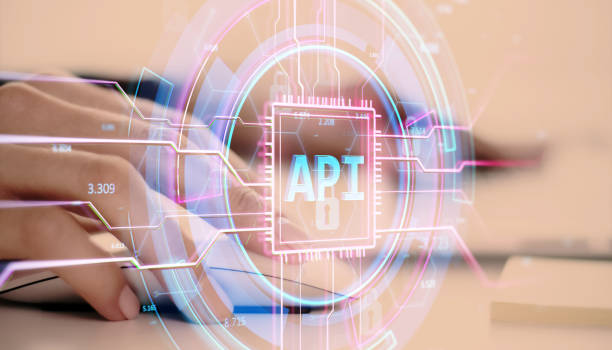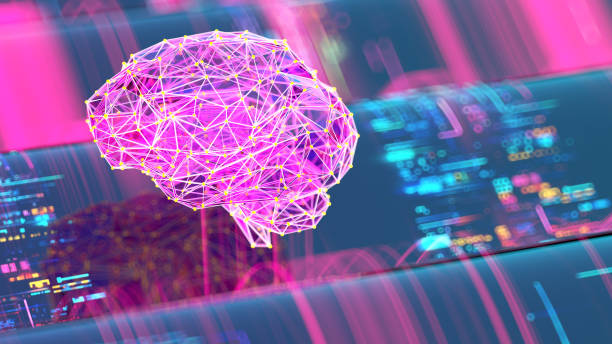What is Artificial Intelligence? Definitions and Basic Concepts
Artificial Intelligence (AI) refers to the ability of a computer system or robot to mimic human cognitive functions such as learning, reasoning, problem-solving, and perception.
In other words, the goal of #ArtificialIntelligence is to create machines that are capable of performing tasks that typically require human intelligence.
This broad field includes numerous sub-branches such as machine learning, neural networks, natural language processing, and computer vision.
Artificial intelligence seeks to build systems that can learn from data, identify patterns, and make decisions similar to humans.
In fact, artificial intelligence tries to enable machines to think and act like humans.
The history of artificial intelligence dates back to the 1950s, when researchers first considered the idea that machines could be built that are capable of thinking.
Since then, artificial intelligence has made significant advances and today plays a role in many aspects of our lives, from smart voice assistants to self-driving cars.
Currently, artificial intelligence is a powerful tool at our disposal that can help improve life and solve complex problems.
Is your online store ready to attract maximum customers and increase sales? Rasaweb transforms your online business with modern and efficient online store designs.
✅ Increased speed and improved SEO
✅ Excellent user experience on mobile and desktop⚡ Get a free consultation on online store website design from Rasaweb!
Types of Artificial Intelligence: From Expert Systems to Deep Learning
Artificial intelligence can be divided into different types based on their abilities and functions.
One common classification is the distinction between Narrow AI and General AI.
Narrow AI refers to systems that are designed to perform a specific task and perform well in that area, such as a facial recognition system or a search engine.
In contrast, General AI refers to systems that are capable of understanding, learning, and performing any task that a human can do.
General AI is still in the research stages and has not yet been fully realized.
Another important classification is the distinction between Expert Systems, Machine Learning, and Deep Learning.
Expert systems use a set of rules and specialized knowledge to solve problems.
Machine learning allows systems to learn from data and improve their performance without explicit programming.
Deep learning is a subset of machine learning that uses deep neural networks to analyze data and learn complex patterns.
Applications of Artificial Intelligence in Various Industries
Artificial intelligence currently has extensive applications in various industries and is constantly expanding.
In the field of medicine, #ArtificialIntelligence is used to diagnose diseases, develop drugs, and provide personalized healthcare.
In the financial industry, artificial intelligence is used to detect fraud, manage risk, and provide automated financial services.
In the field of manufacturing, artificial intelligence is used to optimize production processes, control quality, and predict equipment failure.
In the transportation industry, artificial intelligence plays an important role in the development of self-driving cars and intelligent traffic management systems.
In addition, artificial intelligence has many applications in other areas such as education, agriculture, marketing, and customer service.
The use of artificial intelligence in these industries has led to increased productivity, reduced costs, improved product and service quality, and the creation of new opportunities.
| Industry | Artificial Intelligence Application |
|---|---|
| Medicine | Diagnosis of diseases, drug development |
| Finance | Fraud detection, risk management |
| Manufacturing | Process optimization, quality control |
| Field | Artificial Intelligence Application |
|---|---|
| Education | Personalized learning, automated assessment |
| Agriculture | Irrigation optimization, pest detection |
| Marketing | Targeted advertising, customer behavior analysis |
Machine Learning and its Role in the Development of Artificial Intelligence
Machine Learning is one of the most important sub-branches of #ArtificialIntelligence that allows systems to learn from data and improve their performance without explicit programming.
In fact, machine learning enables systems to identify patterns in data and make decisions or predictions based on these patterns.
Click here to preview your posts with PRO themes ››
Machine learning algorithms are generally divided into two categories: Supervised Learning and Unsupervised Learning.
In supervised learning, the system is trained using labeled data, and the goal is to predict the output for new inputs.
In unsupervised learning, the system is trained using unlabeled data, and the goal is to discover hidden patterns and structures in the data.
Machine learning plays a vital role in the development of many artificial intelligence applications, including facial recognition, language translation, and product recommendation.
Is your company’s website as professional and reliable as it should be? Create an online presence that reflects your credibility and attracts more customers with professional company website design by Rasaweb.
✅ Building a powerful and professional image of your brand
✅ Converting visitors into real customers
⚡ Get a free consultation now!
Neural Networks and Deep Learning: A Transformation in Artificial Intelligence
Neural Networks are computational models that are inspired by the structure of the human brain.
These networks consist of processing units called neurons that are interconnected in layers.
Deep Learning is a subset of machine learning that uses deep neural networks (networks with many layers) to analyze data and learn complex patterns.
Deep learning has created a transformation in the field of #ArtificialIntelligence and has enabled the development of systems that are capable of performing tasks that were previously considered impossible.
For example, image recognition, speech recognition, and language translation systems that use deep learning have very high accuracy and efficiency.
Deep learning has widespread applications in various fields such as self-driving cars, robotics, and medicine.
Challenges and Limitations of Artificial Intelligence
Artificial intelligence, despite its high potential, also faces challenges and limitations.
One of the main challenges is the need for large and high-quality data to train machine learning models.
Without sufficient and appropriate data, the performance of artificial intelligence systems may be poor.
Another challenge is the Interpretability of deep learning models.
Many deep learning models act as black boxes, meaning that it is difficult to understand how they arrived at a particular result.
This can create problems in areas such as medicine and law, where there is a need to explain and justify decisions.
In addition, ethical issues related to the use of artificial intelligence, such as algorithmic bias and data privacy, are also important challenges that need to be addressed.
The Future of Artificial Intelligence: Opportunities and Threats
The future of artificial intelligence is full of opportunities and threats.
Continued advances in this field can lead to improved quality of life, increased productivity, and the solution of complex problems.
However, there are also concerns about the impact of artificial intelligence on employment, privacy, and security.
It is expected that in the future, #ArtificialIntelligence will play a more important role in our lives and will create major changes in various fields such as healthcare, education, transportation, and manufacturing.
However, to fully exploit the potential of artificial intelligence and reduce potential risks, it is necessary to pay special attention to the ethical and social issues related to this technology.
The development of appropriate laws and regulations and public education about artificial intelligence can help to better manage this technology and ensure its responsible use.
Click here to preview your posts with PRO themes ››
Artificial intelligence is advancing rapidly and is expected to play a more prominent role in our lives in the future.
Future applications include:
Artificial Intelligence and its Role in Automation and Increased Productivity
One of the most important impacts of #ArtificialIntelligence is its role in automating processes and increasing productivity.
Artificial intelligence systems are able to automatically perform repetitive and time-consuming tasks, which leads to reduced costs, increased speed, and improved quality.
Artificial intelligence-based automation can be applied in various industries such as manufacturing, customer service, and human resource management.
For example, in the manufacturing industry, smart robots can automatically manage production lines and improve product quality.
In the field of customer service, smart chatbots can answer customer questions and solve their problems.
In human resource management, artificial intelligence systems can optimize employee recruitment and training processes.
However, artificial intelligence-based automation can lead to job losses, so it is necessary to pay special attention to this issue and develop programs for training and retraining employees.
Are you disappointed with the low conversion rate of your online store?
Rasaweb with professional online store design is your definitive solution!
✅ Increase your sales and income
✅ Unparalleled user experience for your customers
⚡ Get a free consultation now!
Ethics in Artificial Intelligence: Considerations and Challenges
Ethical issues related to the use of #ArtificialIntelligence are of particular importance.
Algorithmic bias, data privacy, accountability, and transparency are among the important ethical issues that need to be addressed.
Algorithmic bias means that artificial intelligence systems may make discriminatory decisions due to incomplete training data or unfair algorithms.
Data privacy means that artificial intelligence systems may collect and use users’ personal information, which can lead to privacy violations.
Accountability means that it should be determined who is responsible for the decisions made by artificial intelligence systems.
Transparency means that we need to understand how artificial intelligence systems have arrived at a particular result.
To solve these ethical issues, it is necessary to develop appropriate laws and regulations and for artificial intelligence developers to adhere to ethical principles.
Ethical issues of artificial intelligence is an important and broad topic.
How Artificial Intelligence Can Help Solve Global Problems
Artificial intelligence can play an important role in solving global problems such as climate change, poverty, hunger, and disease.
In the area of climate change, artificial intelligence can help to optimize energy consumption, develop renewable energy sources, and predict weather patterns.
In the area of poverty and hunger, artificial intelligence can help to improve agriculture, distribute food, and provide financial services to the poor.
In the area of diseases, #ArtificialIntelligence can help to diagnose diseases more quickly, develop drugs, and provide personalized healthcare.
For example, artificial intelligence systems can analyze medical images and diagnose diseases such as cancer in the early stages.
Artificial intelligence is a powerful tool that can help to improve human lives and solve global problems, but to use it effectively, it is necessary to pay special attention to the ethical and social issues related to this technology.
Frequently Asked Questions
| Question | Answer |
|---|---|
| 1. What is Artificial Intelligence (AI)? | It is a branch of computer science that aims to create machines capable of simulating human intelligence and performing tasks that require human thinking, such as learning, problem-solving, and decision-making. |
| 2. What are the main types of artificial intelligence? | It can be classified into weak artificial intelligence (Narrow AI), which focuses on a specific task, general artificial intelligence (General AI), which possesses comprehensive human capabilities, and super artificial intelligence (Super AI), which surpasses human intelligence. |
| 3. Mention some common artificial intelligence applications in our daily lives. | Includes voice assistants (such as Siri and Alexa), recommendation systems (such as Netflix and Amazon), self-driving cars, facial recognition systems, and spam filters. |
| 4. What is the difference between Artificial Intelligence and Machine Learning? | Artificial intelligence is the broader concept of creating intelligent machines, while machine learning is a subset of artificial intelligence that focuses on enabling systems to learn from data without explicit programming. |
| 5. What is Deep Learning? | It is a subset of machine learning that uses multi-layered artificial neural networks (deep neural networks) to process data and discover complex patterns, and it is used in image and speech recognition. |
| 6. What are the most prominent benefits of Artificial Intelligence? | Improving efficiency and productivity, automating repetitive tasks, making better decisions based on analyzing big data, and developing solutions to complex problems in fields such as medicine and science. |
| 7. What are the main challenges facing the development and deployment of Artificial Intelligence? | Includes the need for huge amounts of high-quality data, privacy and security issues, bias in data and algorithms, and high development and maintenance costs. |
| 8. Does artificial intelligence raise ethical or social concerns? | Yes, it raises concerns related to privacy, algorithmic bias, job losses due to automation, and responsibility for errors committed by intelligent systems, and the need for a regulatory framework. |
| 9. How can artificial intelligence affect the future of the labor market? | It can lead to the automation of some routine tasks, but it will also create new jobs that require advanced skills in developing, operating, and maintaining artificial intelligence systems. |
| 10. What are some modern or promising technologies in the field of Artificial Intelligence? | Includes advanced natural language processing (NLP) (such as large language models such as ChatGPT), computer vision, robotics, and generative AI. |
Click here to preview your posts with PRO themes ››
And other services of Rasa Web Advertising Agency in the field of advertising
Smart direct marketing: a combination of creativity and technology for campaign management through dedicated programming.
Smart Google Ads: professional optimization to improve SEO ranking using Google Ads management.
Smart Content Strategy: A creative platform to improve digital branding using real data.
Smart SEO: A dedicated service to improve SEO ranking based on marketing automation.
Smart Website Development: A new service to increase online growth through Google Ads management.
And more than hundreds of other services in the field of internet advertising, advertising consulting and organizational solutions
Internet Advertising | Advertising Strategy | Advertorial Report
Resources
Artificial intelligence: concepts, applications and future – Virgool
,Introduction to artificial intelligence in the field of coding site and software engineering – Aparat
,Artificial intelligence – Wikipedia
,What is Artificial Intelligence (AI)? In simple language (+ introduction of types and applications) – Faradars
? Take your business to the peak with the services of Rasaweb Afarin Digital Marketing Agency! At Rasaweb Afarin, we specialize in providing comprehensive digital solutions for the growth and development of your business. From professional website design and SEO to social media management and targeted advertising campaigns, we provide everything you need to be seen and succeed in the online world.
📍 Tehran, Mirdamad Street, next to the Central Bank, South Kazerun Alley, Ramin Alley No. 6
“`












